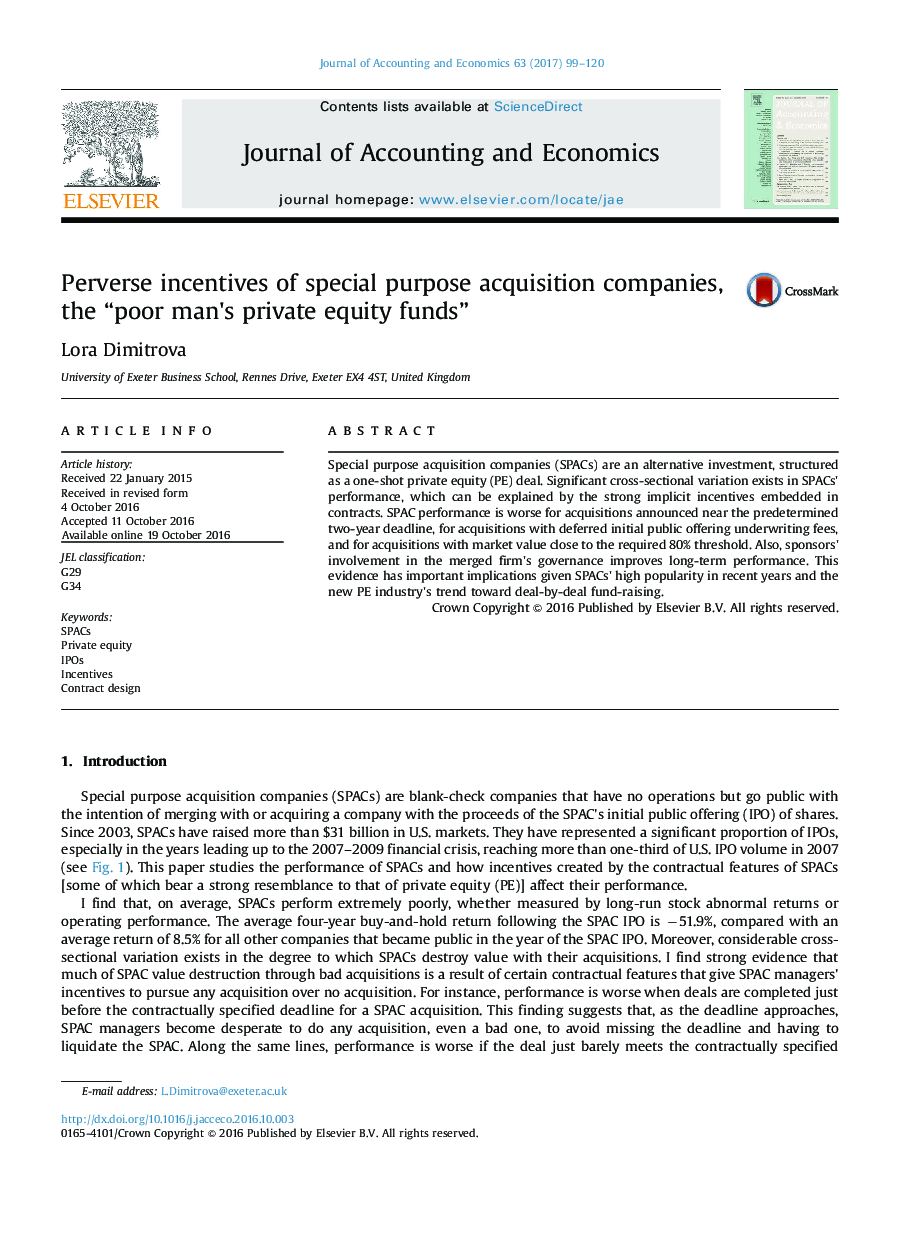| Article ID | Journal | Published Year | Pages | File Type |
|---|---|---|---|---|
| 5086589 | Journal of Accounting and Economics | 2017 | 22 Pages |
Abstract
Special purpose acquisition companies (SPACs) are an alternative investment, structured as a one-shot private equity (PE) deal. Significant cross-sectional variation exists in SPACs' performance, which can be explained by the strong implicit incentives embedded in contracts. SPAC performance is worse for acquisitions announced near the predetermined two-year deadline, for acquisitions with deferred initial public offering underwriting fees, and for acquisitions with market value close to the required 80% threshold. Also, sponsors' involvement in the merged firm's governance improves long-term performance. This evidence has important implications given SPACs' high popularity in recent years and the new PE industry's trend toward deal-by-deal fund-raising.
Related Topics
Social Sciences and Humanities
Business, Management and Accounting
Accounting
Authors
Lora Dimitrova,
